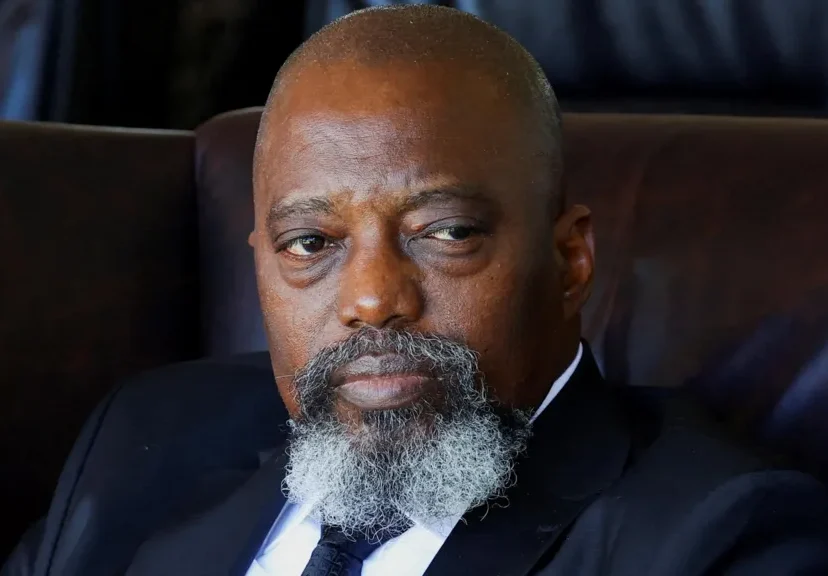A military court in Congo followed the prosecutor’s request on Tuesday, sentencing Joseph Kabila, who is in exile, to death on charges including treason and war crimes.
It is not every day that a country puts one of its former presidents on trial. The case against the former leader of the Democratic Republic of Congo (DRC), Joseph Kabila, before the high military court on suspicion of “complicity” with the armed rebel group Congo River Alliance-M23 (AFC-M23), could have been historic for that reason alone. But with the defendant in exile and no lawyer to defend him after a rushed investigation, the expedited trial felt incomplete.
On Tuesday, September 30, Kabila – president from 2001 to 2019 – was sentenced to death, in line with the request of Lieutenant General Jean-René Likulia Bakulia, who represented the prosecutor’s office. The charges were serious: treason, participation in an insurrectional movement, crimes against the peace and security of humanity, intentional homicide by gunfire, rape, torture, deportation, and forcible occupation of part of eastern DRC, which came under AFC-M23 control at the beginning of 2025.
Read more Subscribers only Peace is slipping further away in eastern DRC, despite mediation efforts by the US and Qatar
All these charges implicitly relied on the supposed authority Kabila is said to have exerted over the rebellion. The Congolese authorities have suspected him of being behind the armed movement since its resurgence in November 2021, after 10 years of dormancy. They therefore hold him partly responsible for war crimes – and even crimes against humanity – committed by the insurgents and documented by human rights organizations.
Last month, the PPRD was banned by the authorities in the capital, Kinshasa, who accused of having an “ambiguous attitude” towards the capture of Congolese territory by the M23.
In a message on X, rebel spokesperson Lawrence Kanyuka welcomed Kabila to Goma saying: “We wish him a pleasant stay in the liberated areas.”
A similar message was shared by another spokesperson, Willy Ngoma.
The Congolese authorities accuse Kabila of war crimes and treason, alleging there is a “substantial body of documents, testimony and material facts” that link the former leader to the M23.
In a now-deleted YouTube video released on Friday, Kabila called the Congolese government a “dictatorship”, and said there was a “decline of democracy” in the country.
Congolese government spokesperson, Patrick Muyaya, rejected Kabila’s allegations, saying he had “nothing to offer the country”.
Fighting between the Congolese army and the M23 first broke out in 2012 and ended in a peace deal the following year. But in 2021 the group took up arms again, saying the promises made in the deal had been broken.
Since the beginning of this year, the M23 has made major advances in the mineral-rich east, including taking Goma in January.
The conflict has led to the displacement of hundreds of thousands of civilians in the last few months.
Kabila has been living outside the country for the past two years – he initially left to pursue a doctorate in South Africa. At the beginning of last month he said he would be returning to help find a solution to the conflict.
Source: BBC


